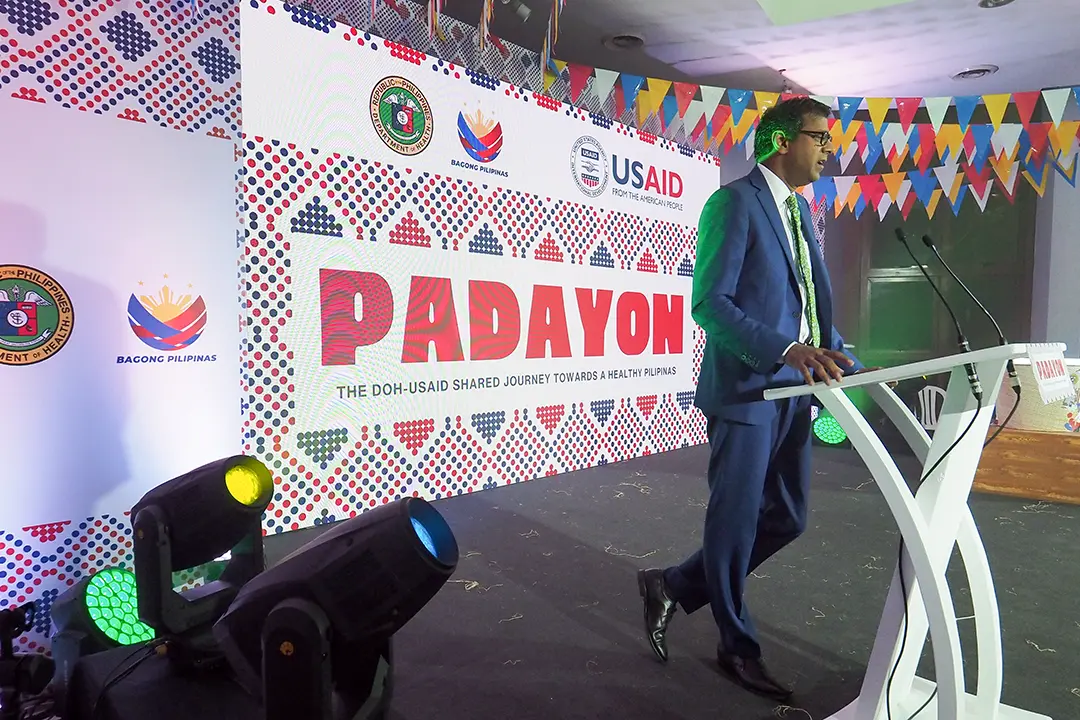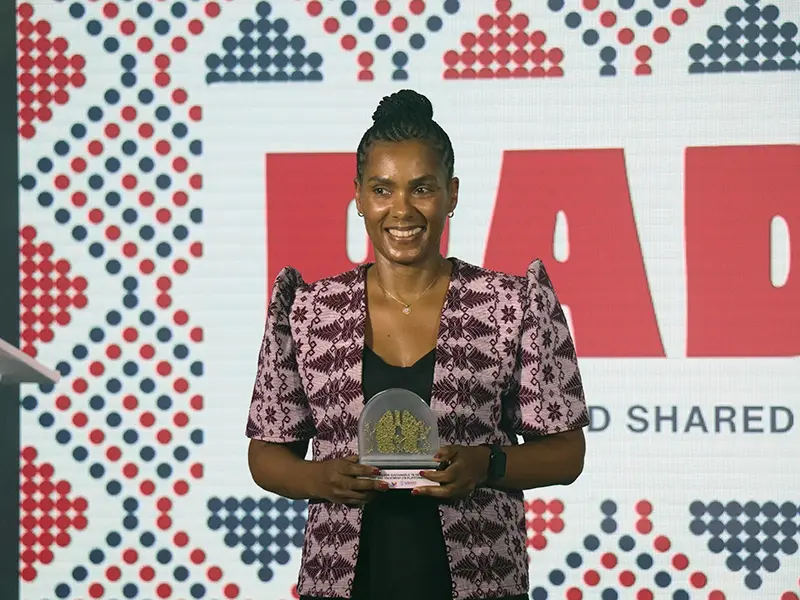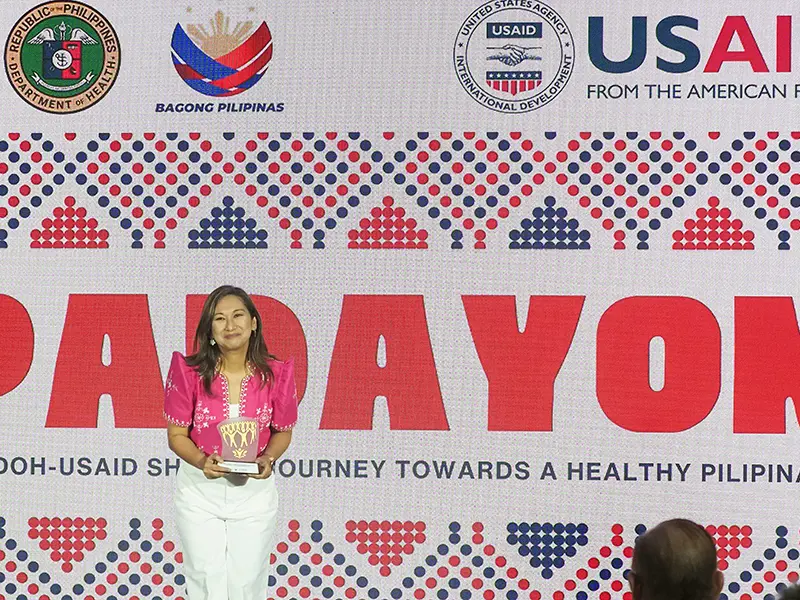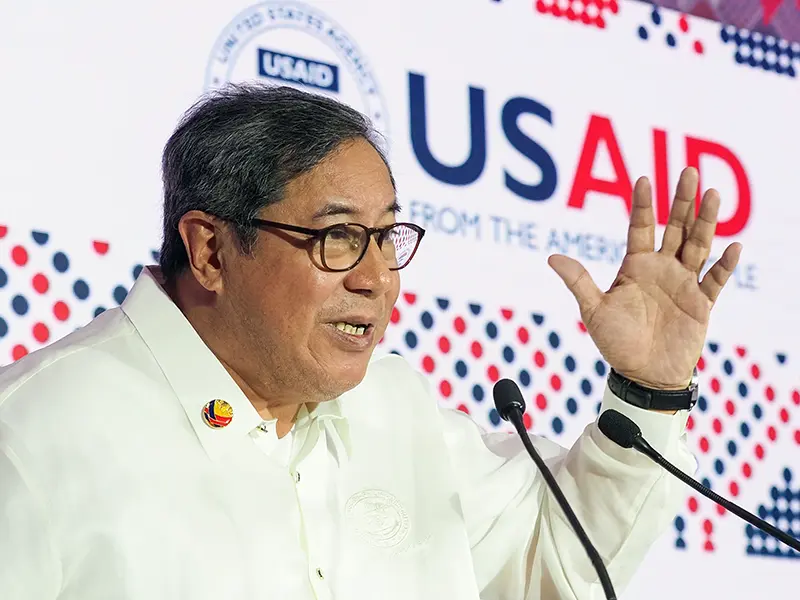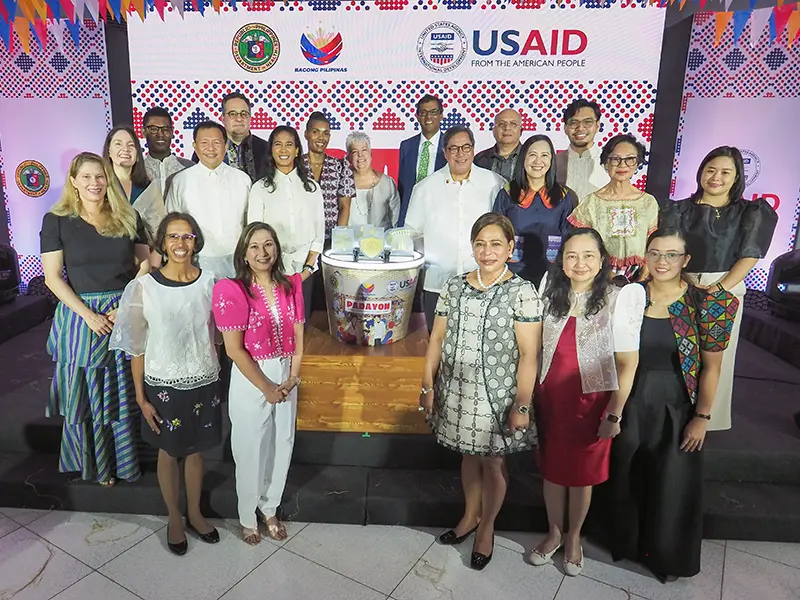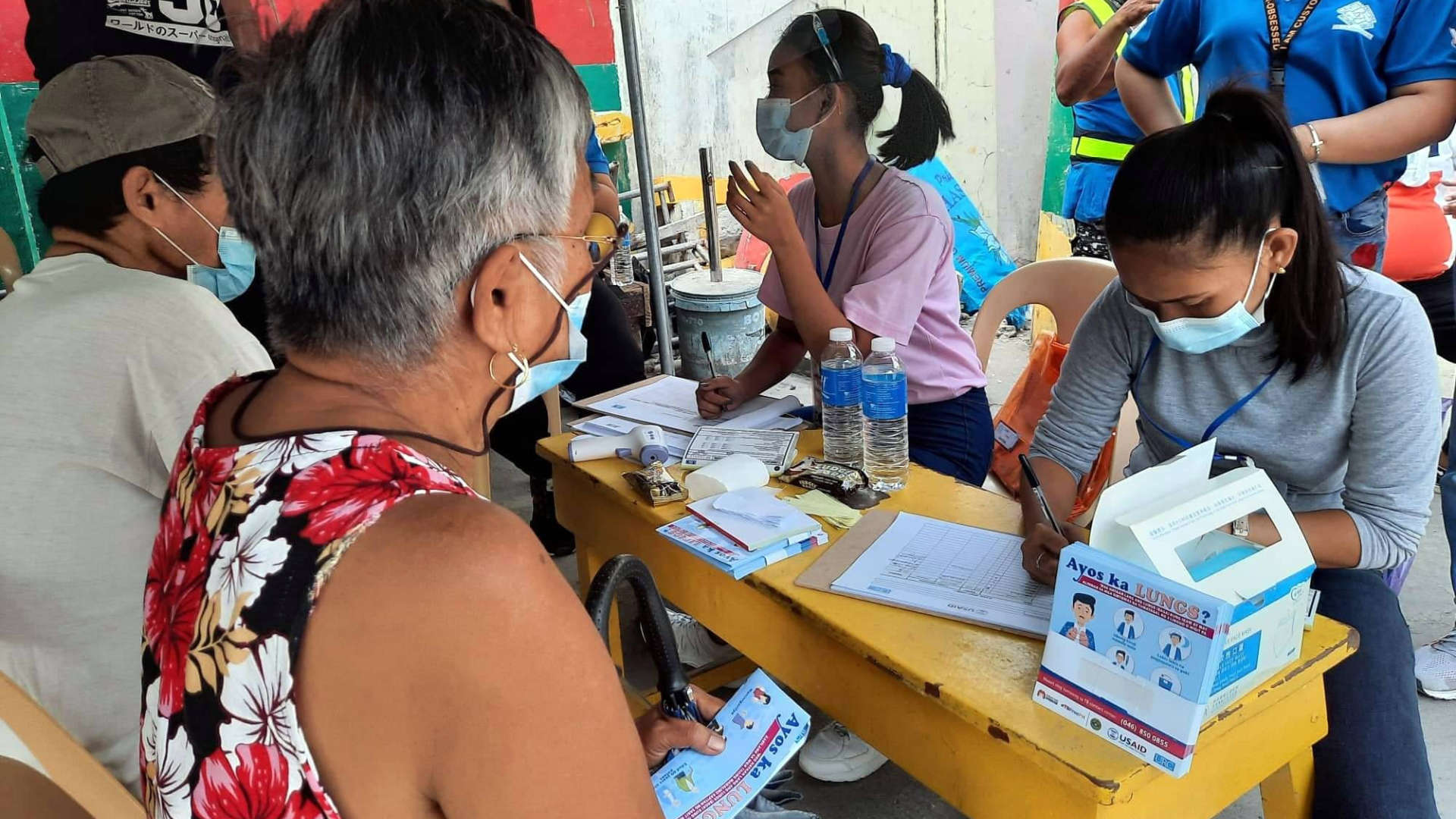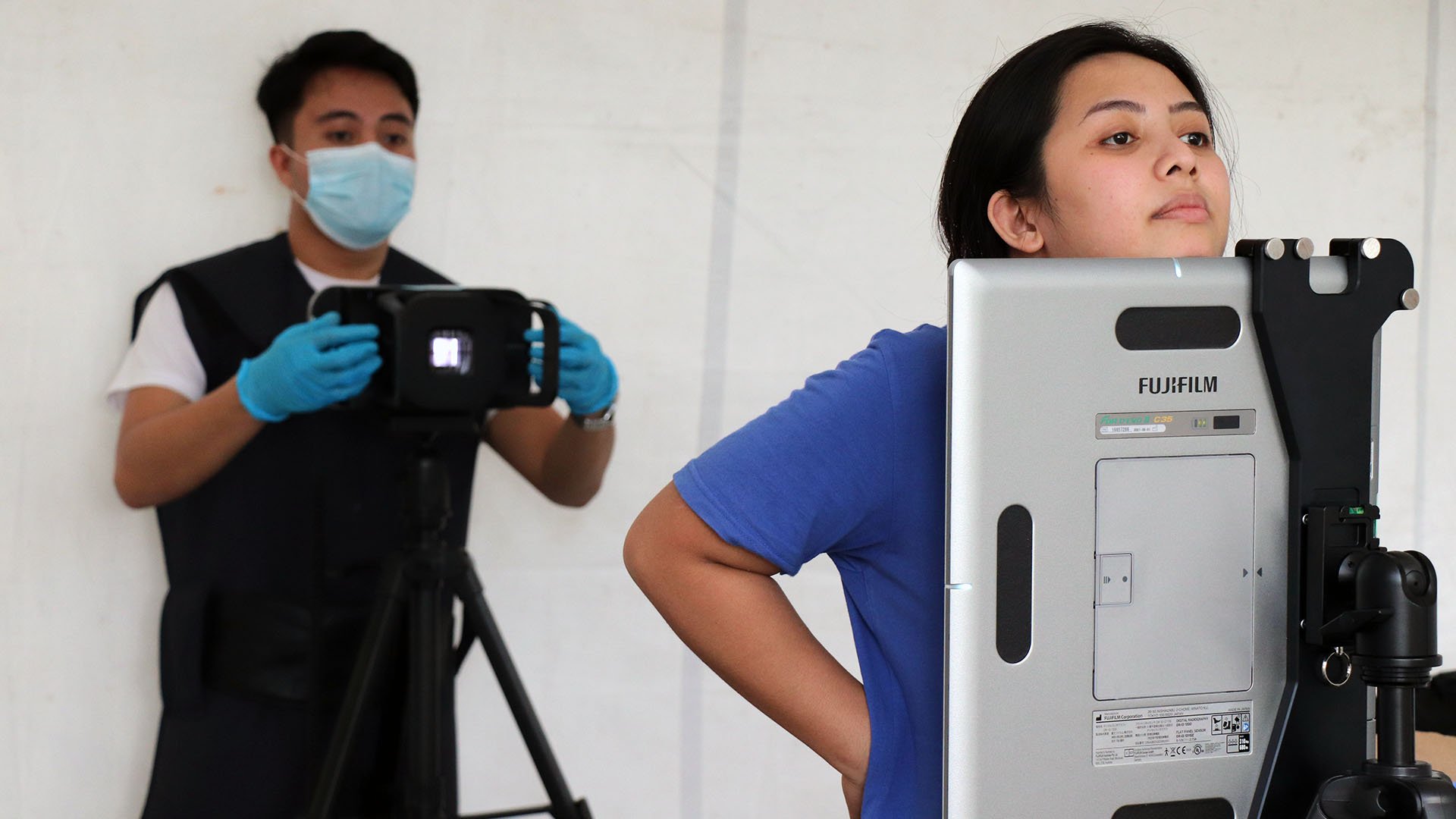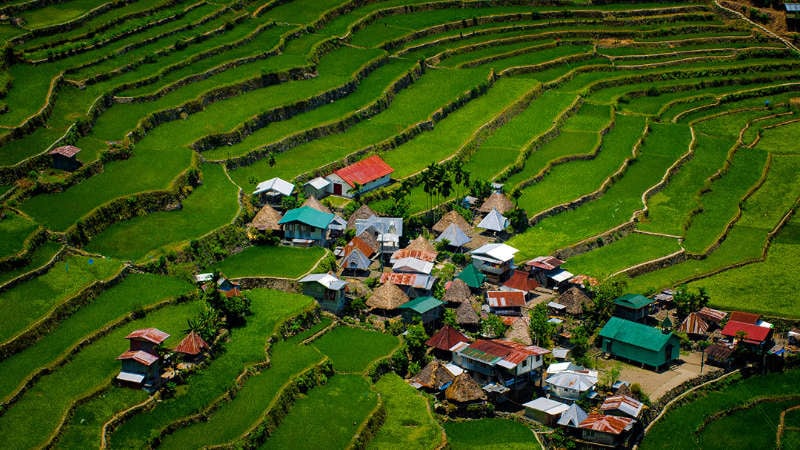High-ranking leaders in USAID, the Philippines Department of Health (DOH), and international and local development organizations gathered in Quezon City, Philippines recently to celebrate the impactful changes brought to vulnerable and underserved Filipinos by DOH’s and USAID’s partnerships.
Padayon: The DOH-USAID Shared Journey Towards a Healthy Pilipinas marked the successful culmination of several USAID health projects that began in 2018, including USAID’s TB Platforms and USAID RenewHealth – both implemented by URC.
Featured speakers included: Dr. Atul Gawande, USAID Assistant Administrator for Global Health; Rebekah Eubanks, USAID Deputy Mission Director; and Dr. Teodoro Herbosa, DOH Secretary. Joining them were more than 250 partners and guests from international and local development organizations and government agencies.
Overall, nine USAID-funded projects contributed to substantial improvements in the health landscape in the Philippines, particularly for:
- Health leadership and governance;
- Training healthcare workers;
- Strengthening public financial management;
- Improving supply chain management;
- Refining health information systems; and
- Expanding coverage of quality health services.
URC-implemented Activity Helps Prevent and Cure TB through Faster Testing and More Treatment Access
Dr. Gawande recognized the advancements made in the battle against tuberculosis (TB) in the Philippines, citing the strategies that led to success.
One of those strategies – supported by the URC-implemented TB Platforms – is connecting portable, digital chest x-ray machines to AI-equipped computers, enabling test results in at the community level in minutes, rather than days or longer. Widespread testing and treatment directly contributed to the elimination of TB in the U.S. and most of Europe, he said.
“More than 750,000 [Filipinos] with TB have been identified and linked to treatment who would never have been identified helping start to bring it under control,” Dr. Gawande said. TB Platforms helped carry out these activities.
Also, in the three highest-burden TB regions in the Philippines, TB Platforms and its partners have achieved a 92% treatment coverage rate – a 32% increase from the baseline of 60% in 2017.
“So that means not only are we detecting TB, we are saving lives at large scale,” Dr. Gawande said.
URC-implemented Activities Help Expand Access to Community-Based Drug Rehab and Mental Health Care
The USAID/DOH partnerships have set up evidence-based, community-based drug rehabilitation (CBDR) services in 22 local government units, made possible in part by USAID activities such as RenewHealth.
CBDR is evidence-based treatment designed to help low- and moderate-risk users avoid jail, recover, and remain productive members of society. This treatment protocol has been adopted by the Philippines Dangerous Drugs Board nationwide. In addition, the activity has trained 4,708 service providers in CBDR and more than 23,700 persons who use drugs have completed treatment.
RenewHealth also helped create and launch the Lusog-Isip app in 2021, the first for Filipinos to access self-help and self-care resources for mental health and substance abuse. Users receive targeted resources and action steps to improve their well-being based on a self-assessment. The app has been used by more than 16,700 Filipinos and studies have documented significant improvements in their wellbeing and coping behaviors.
In his closing speech, DOH Secretary Dr. Teodoro Herbosa, underscored how partnerships have helped save lives and provide better care to Filipinos.
“We look forward to continuing collaborative efforts and maintaining and achieving even greater milestones in the years ahead,” Dr. Herbosa said. “The Department of Health is committed to our partnership with USAID as we continue to work towards a healthy Pilipinas.”
